KuCoin | OKX | |
Supported Coins | +700 | +300 |
Spot Trading Fees | 0.10%
For both makers and takers. For VIP users, fees can drop as low as 0.03% for takers and -0.005% for makers. Using KCS to pay trading fees offers a 20% discount | 0.08% – 0.10%
0.10% for taker trades and 0.08% for maker trades. As you trade more or hold more OKB, your fees decrease, potentially reaching as low as 0.02% for high-volume traders |
Future Trading Fees | 0.02% – 0.06%
0.02% for taker trades and 0.06% for maker trades. For VIP users, fees can drop as low as 0.03% for takers and -0.01% for makers. Using KCS to pay trading fees offers a 20% discount | 0.02% – 0.05%
0.05% for taker trades and 0.02% for maker trades. Like spot trading, the more you trade or the more OKB you hold, the lower your fees can become. |
Our Rating |
(3.6/5) |
(4/5) |
Read Review | Read Review |
KuCoin vs. OKX: Compare The Best Features
KuCoin and OKX are two powerful cryptocurrency exchanges that cater to different user needs. Each platform excels in unique areas, from user experience to advanced trading features.
In this comparison, we’ll look at key aspects such as ease of use, cryptocurrency selection, Web3 integration, and advanced trading capabilities to help you choose the best fit for your needs.
-
Ease of Use & Mobile App Experience
Regarding ease of use, KuCoin offers a user-friendly interface with beginner-friendly features like spot trading and more advanced tools for experienced traders.
However, the learning curve can be steep for newcomers due to its numerous features.

In contrast, OKX also offers a clean and intuitive interface but places a greater emphasis on advanced tools, which might confuse those new to crypto.
The OKX mobile app is also robust and user-friendly, with quick access to key features such as trading, staking, and asset management.
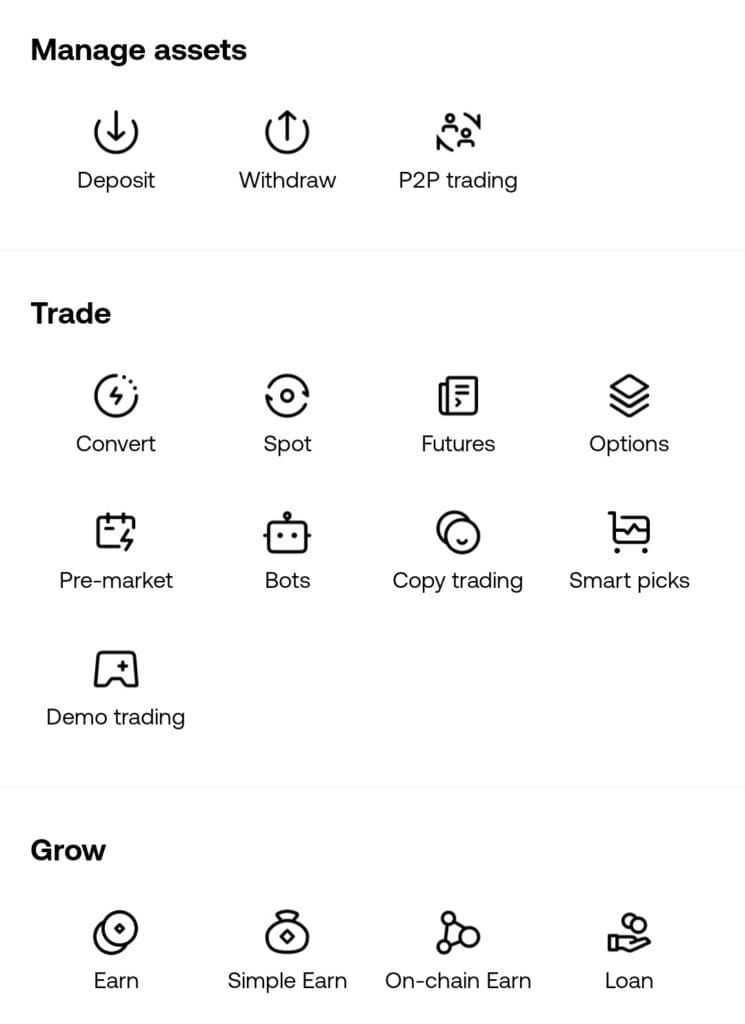
Bottom line, both platforms provide great mobile experiences, but KuCoin might appeal more to those looking for simplicity, whereas OKX suits those seeking advanced trading capabilities on mobile.
-
Cryptocurrency Selection
KuCoin supports an impressive list of +700 cryptocurrencies, including major coins like Bitcoin, Ethereum, and a wide array of altcoins and DeFi tokens.
This makes it ideal for traders looking for diversity. Additionally, KuCoin offers niche tokens and NFTs, catering to every type of investor.
OKX, while offering +300 cryptocurrencies, focuses more on mainstream assets like Bitcoin and Ethereum, as well as stablecoins, ensuring stability for risk-averse users.
OKX also supports NFTs and offers a seamless integration for DeFi products, but its selection doesn’t quite reach the breadth that KuCoin offers.
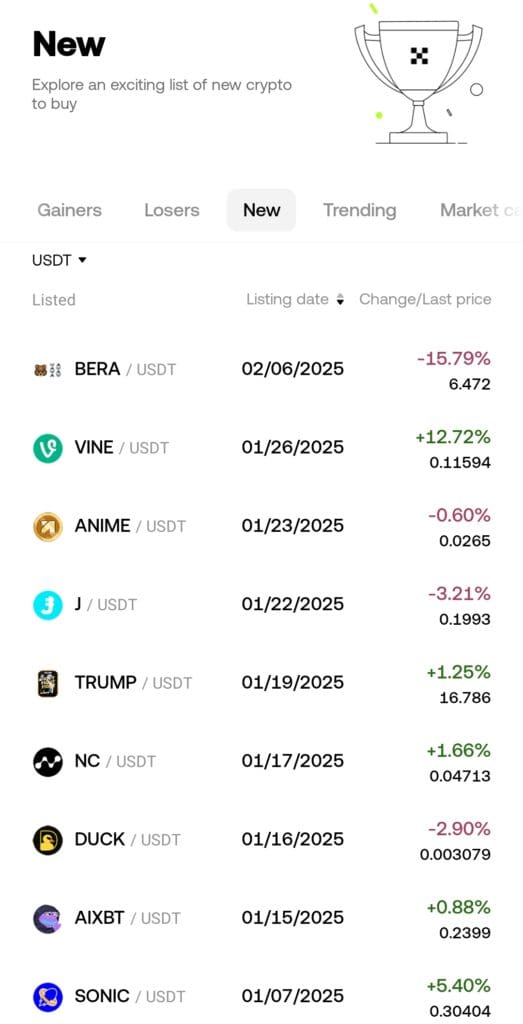
-
Trading Crypto Features & Experience
KuCoin shines with its comprehensive suite of advanced trading features, including margin trading, futures contracts, and automated trading bots.
It also allows users to leverage up to 100x on futures trades, providing significant potential for higher returns, albeit with increased risk.
The platform’s KCS (KuCoin Shares) discount system rewards high-volume traders with lower fees.
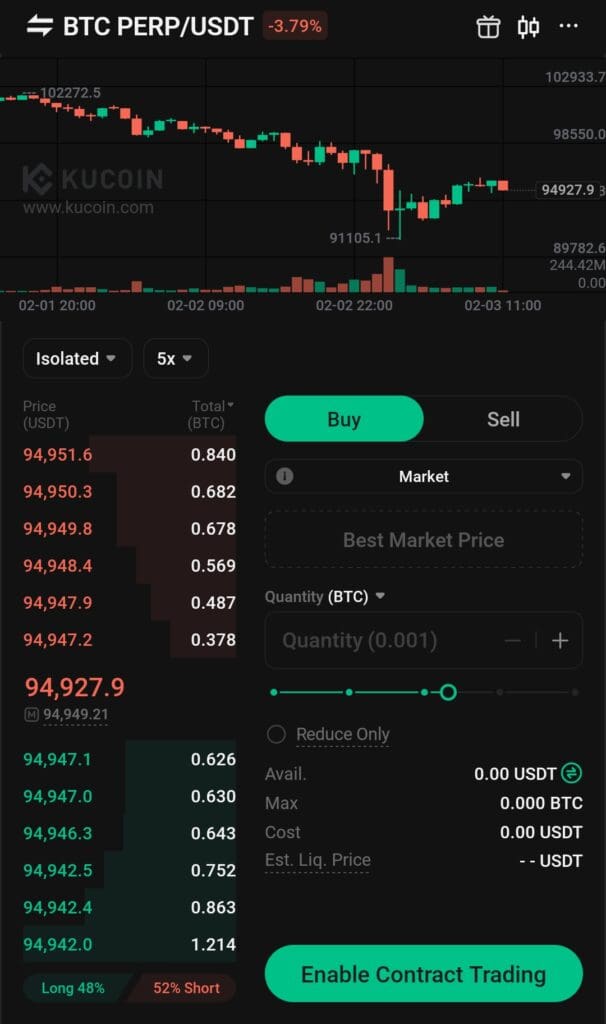
OKX, on the other hand, offers an equally impressive array of advanced tools, including futures, margin trading, options, and perpetual swaps, with up to 100x leverage.
OKX also stands out with its trading bots that support strategies like grid trading and arbitrage.
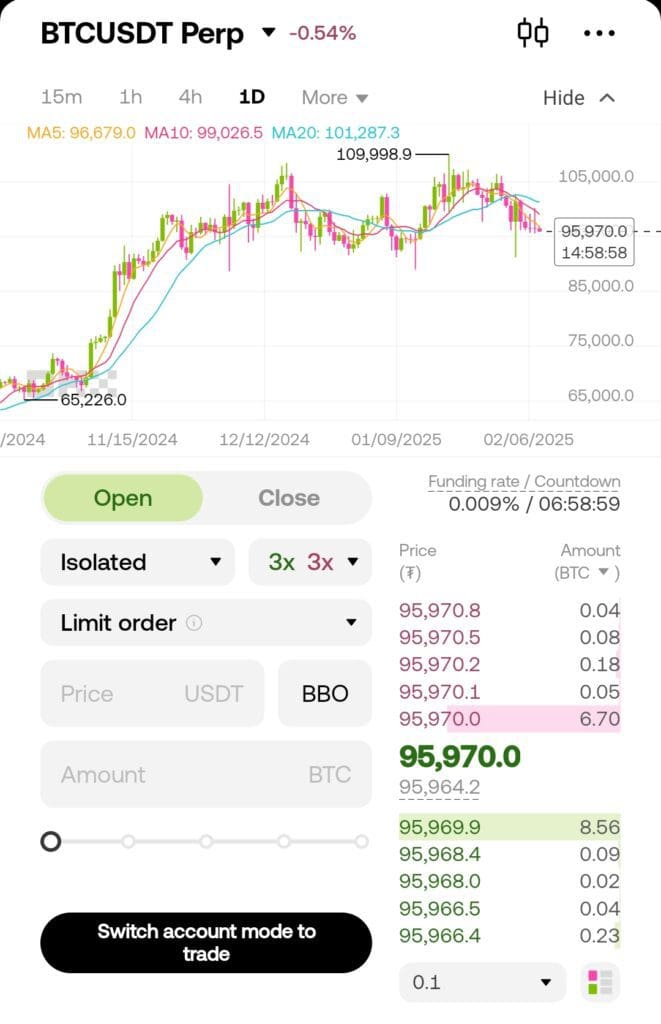
For both platforms, trading fees are relatively low, but OKX provides more advanced products for traders seeking flexibility in their strategies.
-
Staking Options and Rewards
KuCoin offers a diverse range of staking options through its KuCoin Earn platform. Users can stake over 350 cryptocurrencies, including popular tokens like KCS, DOT, and ETH.
The platform provides both flexible and fixed-term staking products, with some coins offering APRs as high as 100%.
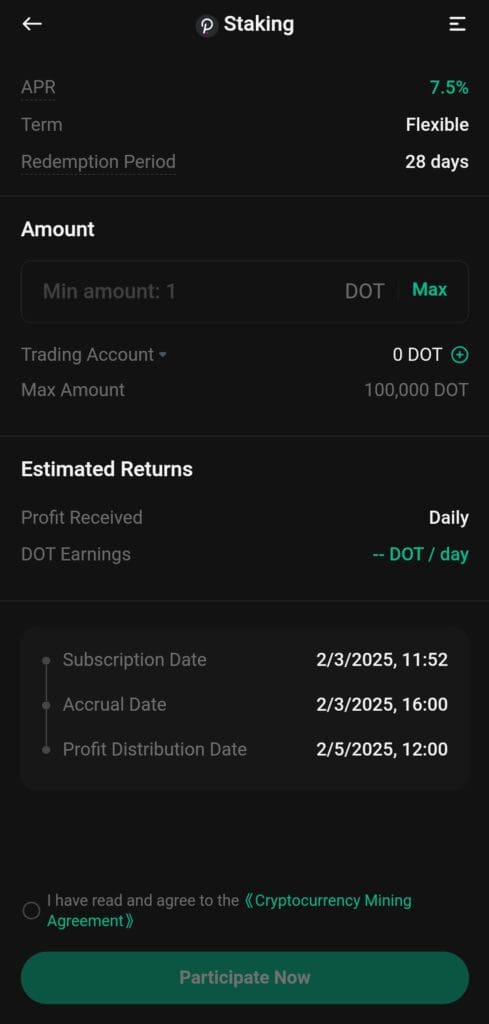
OKX, on the other hand, provides staking services through its On-chain Earn and Simple Earn products. Users can stake assets like ETH, SOL, and OKT, with APRs varying based on the token and market conditions.
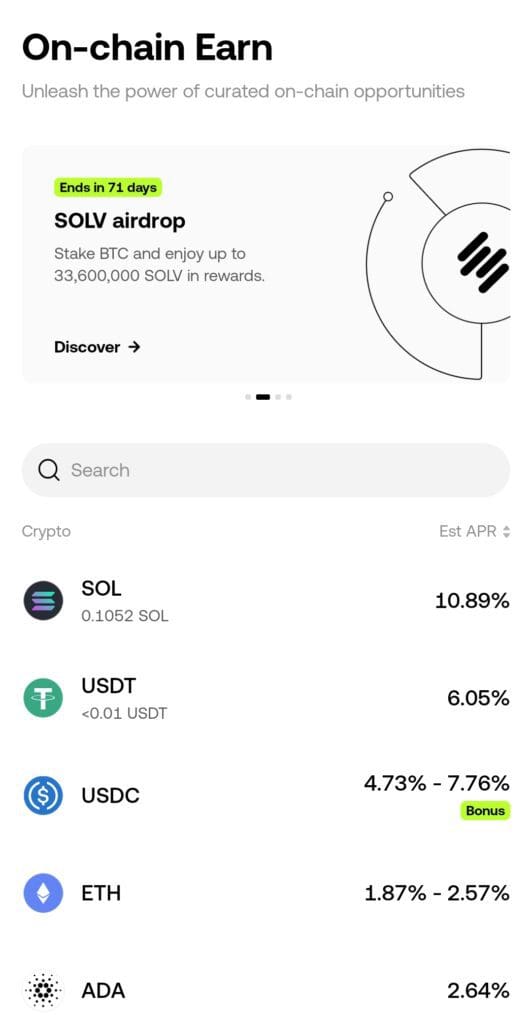
Overall, KuCoin stands out for its higher staking rewards and a broader selection of supported cryptocurrencies, making it more appealing for users seeking diverse staking opportunities.
-
DApps and Web3 Integration
Both KuCoin and OKX have solid Web3 and DApp integrations, but they approach them differently.
KuCoin features Web3 integration through its KuCoin Community Chain (KCC), giving users access to decentralized apps and DeFi protocols.
Additionally, its NFT marketplace attracts those interested in blockchain gaming and digital art.
On the other hand, OKX provides direct access to DeFi protocols and has an extensive NFT marketplace, integrated with Web3 features.
OKX’s multi-chain wallet enhances Web3 engagement, offering more flexible DeFi opportunities than KuCoin’s offerings.
-
Wallet Options
KuCoin offers a built-in wallet for users to securely store their cryptocurrencies. The KuCoin Wallet supports a wide range of tokens and offers features like staking, token swapping, and NFT management.
The wallet is integrated with the KuCoin exchange, allowing for seamless transfers between the exchange and the wallet.
OKX offers a multi-chain wallet that supports over 60 blockchain networks. The OKX Wallet allows users to manage their assets, interact with decentralized applications (DApps), and participate in DeFi activities.
It also supports NFTs and offers features such as token swapping and staking.
-
Trading Bots and Automation
KuCoin provides a range of trading bots to automate trading strategies. Users can choose from bots like the Spot Grid, Futures Grid, and DCA bots.
These bots are designed to help users execute strategies like dollar-cost averaging and arbitrage, reducing the need for constant market monitoring.
OKX also offers automated trading solutions, including grid trading bots and copy trading features.
The platform's trading bots support various strategies, and users can customize parameters to suit their trading preferences.

-
Security Measures And Past Hacks
KuCoin has faced significant security challenges in the past, notably a major hack in 2020 that resulted in the loss of over $275 million worth of cryptocurrencies.
However, the platform reimbursed all affected users using its insurance fund and has since strengthened its security measures, including two-factor authentication (2FA), encryption, and insurance for user funds.
OKX has maintained a solid reputation in the crypto community and has not been involved in any major security breaches or hacks that resulted in significant losses for users.
The platform employs industry-standard security measures, including 2FA, encryption, and withdrawal whitelisting.
Which Investors & Traders May Prefer KuCoin Exchange?
KuCoin appeals to a wide range of traders, especially those seeking low fees and a diverse selection of assets.
Altcoin and DeFi Enthusiasts: KuCoin supports over 700 cryptocurrencies, making it ideal for traders looking to diversify beyond Bitcoin and Ethereum.
Advanced Traders: KuCoin offers advanced features like margin and futures trading with up to 100x leverage.
Passive Income Seekers: With KuCoin Earn, users can stake a variety of cryptocurrencies to earn passive rewards.
Global Traders: KuCoin operates in over 200 countries, providing broad access to international markets.
Which Investors & Traders May Prefer OKX Exchange?
OKX is best suited for traders who prioritize low fees, security, and access to a wide range of advanced trading tools.
Experienced Traders: With futures, margin, and options trading, OKX caters to seasoned traders who require advanced products and high leverage.
DeFi & NFT Enthusiasts: OKX integrates well with Web3 and DeFi apps, offering opportunities for users to explore the growing decentralized finance ecosystem.
Investors Seeking Security: OKX provides top-notch security features, including insurance policies and cold storage, ensuring user assets are protected.
Global & Fiat-Focused Traders: OKX operates in over 100 countries, with fiat-to-crypto options available in many regions.
Bottom Line
KuCoin is best for traders looking for an expansive range of altcoins, low fees, and diverse trading options.
It excels in providing an accessible platform for both beginners and advanced traders, especially those interested in staking and passive income opportunities.
OKX, on the other hand, is ideal for advanced traders who need access to margin trading, futures, and Web3 features.
It also stands out in terms of security and fiat integration, making it a great choice for global traders looking for low fees and a secure environment.
